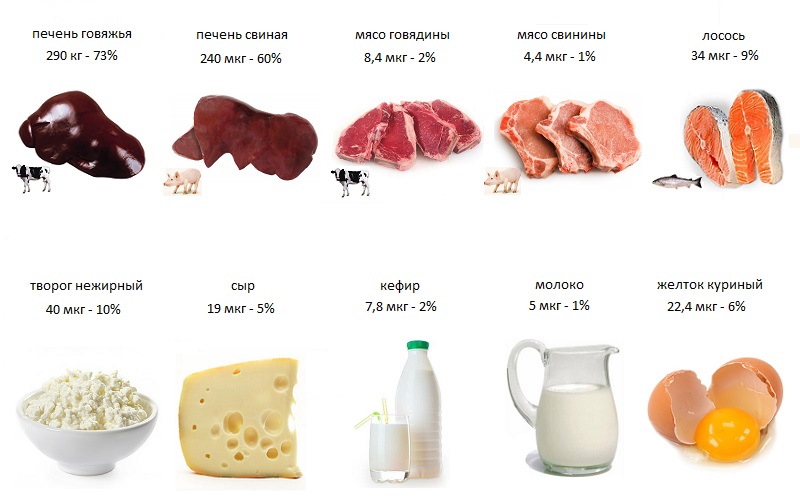Folic acid: benefits, harms, where to find
Folic acid, also known as vitamin B9, is needed for the proper growth and development of the immune and circulatory system, but this is short and simple. In fact, it is an irreplaceable element that plays a very important role in our body. About what folic acid is useful for, how to drink it correctly and where to look - we'll talk in this article.
Content
The benefits of folic acid
The discovery of vitamin B9 is directly related to the process of fighting anemia. So, in 1938, scientists removed a complex of substances from yeast, which, when regularly taken by patients, significantly improved blood counts. After some time, namely in 1941, chemists managed to recreate this element in an artificial way.
Outwardly, vitamin B9 resembles yellow, on the verge of orange, scanty crystals, resembling a powder. Vitamin remarkably absorbs steam with water, but practically does not lend itself to dissolution in alcohol. Folic acid does not tolerate light very well and is almost completely destroyed when heated. That is why it is extremely difficult to obtain it in sufficient quantities from products after heat treatment.
Speaking about the benefits, first of all, it is worth mentioning its leading role in the process of hematopoiesis. It is she who is considered the main supplier of carbon for the subsequent conversion of proteins into hemoglobin, which includes iron. Vitamin B9 is also involved in the synthesis of nucleic acids, which carry information of a hereditary nature.
Under the influence of this acid, the formation of pathogens of the nervous system, such as serotonin and norepinephrine, is noted. The first one gives deep and healthy sleep, helps to calm down quickly, and norepinephrine is responsible for the feeling of joy and pleasant excitement, helps a person to lead an active lifestyle.
The special need for vitamin B9 increases in women during the perinatal period. In this case, the vitamin significantly reduces the risk of developing fetal pathologies, miscarriage, birth crumbs premature, prevents bleeding after childbirth. B9 is also important for the healthy development of the nervous system, immunity, circulatory system and blood vessels, and the baby's brain in the womb.
In the postpartum period, folic acid helps to suppress the degree of manifestation, or even prevent postpartum depression... It has been proven to have a general positive effect on the work of the liver and gastrointestinal tract. With its help, you can quickly recover from prolonged stress. Folic acid is good for ladies during menopause to control your psycho-emotional state.
Folic acid intake will be useful for men, if they wish to conceive healthy offspring. In this case, you need to start drinking it in advance, three to four months in advance. This approach will improve the quality and quantity of semen.
Folic acid lowers the level of bad cholesterol in the blood, helps to improve appetite, normalizes bowel function, reduces the risk of stroke and heart disease, helps high-quality absorption of its vitamin group, reduces the effects of stress and helps fight depression.
For athletes, vitamin B9 is also essential. It helps to build muscle mass and significantly increases the body's endurance to stress and assists in the recovery process after training.
Folic acid harm
Like any vitamin consumed in uncontrolled amounts through synthetic supplementation, folate can be potentially harmful. Let's make a reservation right away that we are talking about a synthetic analogue, because it is simply impossible to overeat folic acid in its natural form (i.e. through food).
So, in particular, one of the studies carried out in America has shown that taking vitamin B9 increases the risk of developing breast cancer by 30%. But such horrifying data are built on a continuous ten-year intake of folic acid by subjects in the form of dietary supplements. Men with regular and continuous consumption of medicines with vitamin B9 for three years were more likely to be diagnosed with prostate cancer.
However, the absurdity of such studies is "on the face". Another great Swiss physician and alchemist Paracelsus said "Everything is poison and everything is medicine." Everything should be in moderation, even taking synthetic drugs should take courses and not throughout life. Continuous intake of absolutely any substance, be it a vitamin or the most useful product, will sooner or later lead to disastrous consequences. Therefore, just remember about the measure and then everything will only benefit.
Folic acid: contraindications
As such, there are no contraindications to taking vitamin B9, except in cases of hypersensitivity. Do not drink folic acid if you have B12-deficiency anemia. It is also worth mentioning that when taking a vitamin in the form of a dietary supplement, you need to carefully read the contraindications indicated by the manufacturer. Since in the production of the vitamin, auxiliary components can be used. So, for example, on the instructions for some drugs it is said that it is unacceptable to take children under three years old, people with lactose intolerance, with a lack of lactase, and also take with caution to those who have some types of malignant tumors. Therefore, before taking pure vitamins, you need to consult a specialist.
Folic acid in foods
Folic acid is found in plant and animal products. The former include: orekhs, cereals, bran, carrots, bananas, pumpkin, oranges, yeasts, green vegetables and leaves. Animal food with folic acid content: beef and beef liver, egg yolk, lamb and pork liver and meat, salmon, milk and dairy products.
It is also worth remembering that in a normal healthy body, the intestines can produce some amount of folic acid on their own. That is why it is so important to keep an eye on cleanliness and proper functioning of this organ.
To get the optimal amount of the vitamin through food, do not heat it. And if everything is clear with meat, here you cannot do without processing, then it is better to eat vegetables in their original form. Otherwise, the element will be destroyed by 90%.
How much folic acid do you need
The daily requirement for a vitamin for an adult is 400 mcg, for pregnant women the dosage is higher - 600 mcg, during lactation - 500 mcg.
Folic acid deficiency: symptoms
When pregnancy occurs, a lack of this vitamin can be the cause of the development of a variety of abnormalities in the formation of the fetus; in the postpartum period, the deficiency will be expressed in severe postpartum depression.
A lack of vitamin B9 can manifest itself in the form of skin problems (the appearance of persistent acne, psoriasis, vitiligo disease). However, the most prominent signs of a deficiency are the following symptoms:
- early fatigue even at minimal loads;
- pale skin color;
- increased irritability;
- sleep problems;
- memory impairment, constant forgetfulness;
- frequent headaches.
If you do not identify the shortage in time and do not start high-quality treatment, the symptoms will worsen. A critical point is the change from simple aggression towards others to fierce enmity towards the whole world, the appearance of apathy, the generation of mania, paranoia in the patient's head, a strong decrease in appetite and weight loss.
With a prolonged and prolonged shortage of this acid, megaloblastic anemia can begin to develop, which is very dangerous and will require urgent serious treatment.
Let us concretize the symptoms of vitamin B9 deficiency:
- a constant feeling of anxiety;
- internal unfounded fear;
- memory losses;
- interruptions in digestion;
- dental disease;
- the development of anemia;
- earlier appearance of gray hair;
- the development of pathologies during pregnancy;
- decreased activity;
- excessive irritability and strong aggression;
- skin problems and diseases;
- profuse hair loss.
Folic acid during pregnancy
In the perinatal period, folic acid is prescribed to almost all expectant mothers. In no case should you ignore her reception, since it is very likely to manifest itself in many disastrous consequences. Vitamin B9 actively affects the health of cells and their new formation. With a sufficient amount of it, the development of the fetus will go the right way, without the formation of pathologies.
Thus, there is a qualitative formation at the level of DNA and RNA. Remember, even if at the beginning of pregnancy there was a normal level of folic acid in the body, at the time of the onset of the perinatal period, its amount can drop significantly, which leads to miscarriages and the formation of pathologies in the unborn baby. For prevention, it is very useful to take a vitamin at the planning stage of pregnancy. However, despite the special role of the influence of folic acid on the course of pregnancy, it is not recommended to prescribe it yourself. The doctor will be able to establish the optimal dosage that will not cause harm or lead to an overdose, which can be easily obtained at the time of taking a synthetic analogue.
Folic acid for children
Folic acid is one of the main building blocks for a growing body, as it contributes to the normal functioning and development of cells. This is the main reason folic acid is important for children.
For infants, if the mother leads a correct lifestyle and monitors the balance of her diet, there is no need to introduce an additional source of vitamin into the diet. There is a risk of getting an allergic reaction that will result in itchy skin, rashes and asthma. However, if the baby is inhibited in development: it is not growing fast enough or is gaining weight very poorly, then the pediatrician may prescribe a course of vitamins.
From one to three years old, vitamin B9 becomes simply necessary, which is due to the active growth of the musculoskeletal system. The brain begins to develop rapidly, it needs to capture and process a huge amount of information. For this, naturally, he needs help.
The daily requirement of a child for folic acid is determined on an individual basis, so it is better to consult a specialist before taking it. With an increase in the growth and age of the baby, the dosage increases. The standard pediatric dosage is as follows:
- 75 mcg - from three to six years;
- 100 mcg - from six to ten years;
- 150 mcg - from ten to fourteen years.
It is better to take it in conjunction with other vitamins, so for such purposes it is much better to purchase multivitamins.








